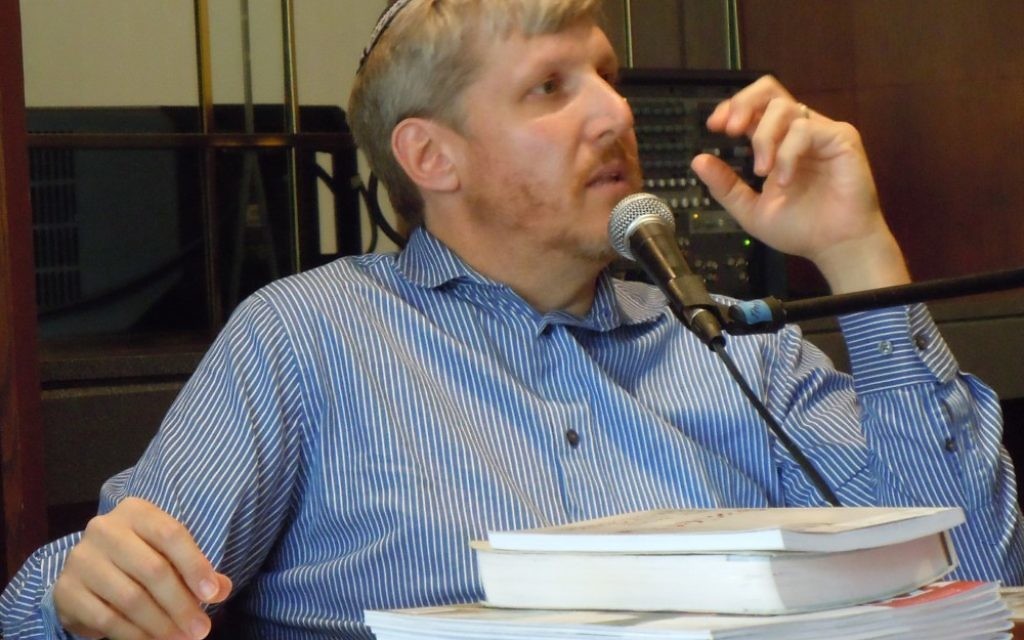Faiths Share Devotion to Sustainable Environment
Judaism, Christianity and Islam share a belief in sustainability and stewardship of the environment, according to a panel discussion organized by the Neshama Interfaith Center at Ahavath Achim Synagogue on Sunday afternoon, Aug. 21.
“It isn’t just me trying to do something nice because it makes me feel good,” AA Rabbi Laurence Rosenthal said. “It isn’t. It’s an obligation.”
About 50 people attended the interfaith discussion on the environment, “Mother Earth, Our Common Home.” Joining Rabbi Rosenthal on the panel were the Rev. Kate McGregor Mosley, the executive director of Georgia Interfaith Power & Light, and Hounada Sinno, a member of the Roswell Community Masjid and representative of the Islamic Speakers Bureau of Atlanta.
Get The AJT Newsletter by email and never miss our top stories Free Sign Up
The three Abrahamic faiths share a responsibility to tend and protect the world under Genesis 2:15, which Mosley and Rabbi Rosenthal referred to as the first commandment in the Torah.
“We need to live in relationship with nature,” not a relationship to nature, Mosley said, emphasizing the necessity to maintain “gratitude and awe” toward G-d while observing and caring for the wonders of nature.
“We are just sharing the planet” with the rest of creation, Sinno said, but we are causing destruction with a use-it-and-toss-it culture. “We are part of it, and we don’t really think about it.”
Mosley’s organization, GIPL, aims to help all 15,000 houses of worship in Georgia become models for sustainability and stewardship, and Rabbi Rosenthal said the organization does a great job of being patient and encouraging rather than badgering and demanding. GIPL offers grants for renovations that, for instance, enhance energy efficiency.
Rabbi Rosenthal said a key factor in AA’s environmental efforts is “force of nature” Myrtle Lewin. He said every congregation needs someone like Lewin to push it forward. “I bless you all with lots of Myrtles.”
Thinking about all the world’s environmental problems can be overwhelming, Mosley said, but we shouldn’t get caught up in trying to solve everything at once or seeking the perfect response.
“I believe that we are all called to join G-d in this work of healing,” she said.
Mosley focused on the problem of deforestation and said the world is losing 20 football fields’ worth of trees every minute. The loss of trees contributes to rising global temperatures because forests absorb greenhouse gases, she said.
She said Americans are complicit in the loss of trees in ways ranging from our use of paper to our demand for avocados, which has led Mexican farmers to clear-cut old-growth pine forests to plant the profitable crop.
Rabbi Rosenthal concentrated on another food source, fish, and the damage done to aquatic ecosystems through commercial fishing and fish farming.
“The oceans are in deep, deep trouble,” he said, noting that Atlantic fisheries have been exhausted. He went into detail about the waste and destruction involved in standard commercial long-line fishing and trawling and about the disease and toxicity involved with some fish farming.
He advised looking for the Marine Sustainability Council’s blue fish logo when buying fish, and he had news of little comfort for observant Jews: Great advances have been made in sustainable production of shellfish.
The rabbi, a vegetarian, also warned of the effects of the hormones, antibiotics and toxic substances working their way up the food chain to humans.
He cited several biblical commandments that dictate the need to change our ways, including the prohibition on wanton destruction of the environment, the ban on causing animals pain and the necessity to save lives.
Sinno said there are many reasons to lead a greener life, including being answerable to G-d. “I believe one day I’ll be held accountable for everything I do.”







comments